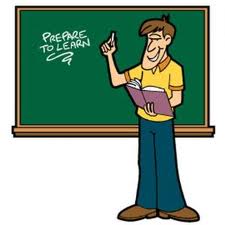Auxiliary Verbs
Auxiliary Verbs are the verbs be, do, have, will when they are followed by another verb (the full verb) in order to form a question, a negative sentence, a compound tense or the passive.
The verb "be"
The verb be can be used as an auxiliary and a full verb. As an auxiliary we use this verb for compound tenses and the passive voice. Note that be is an irregular verb:- Simple Present:
- I am, he/she/it is, we/you/they are
- Simple Past:
- I/he/she/it was, we/you/they were
- Past Participle:
- been
Progressive Forms
- Present Progressive:
- He is playing football.
- Past Progressive:
- He was playing football.
- Present Perfect Progressive:
- He has been playing football.
- Past Perfect Progressive:
- He had been playing football.
- Simple Present/Past:
- The house is/was built.
- Present/Past Perfect:
- The house has/had been built.
- Future I:
- The house will be built.
The verb be can also be a full verb. In this case, it's not followed by another verb. If be is used as a full verb, we do not need an auxiliary in negative sentences or questions.
- positive sentence:
- They are fifteen years old.
- negative sentence:
- They are not fifteen years old.
- question:
- Are they fifteen years old?
The verb "have"
The verb have, too, can be used both as an auxiliary and as a full verb. As an auxiliary we use this verb to form compound tenses in active and passive voice. (Use the past participle of the full verb.)Compound Tenses - Active Voice
- Present Perfect Simple:
- He has played football.
- Past Perfect Simple:
- He had played football.
- Present Perfect Progressive:
- He has been playing football.
- Past Perfect Progressive:
- He had been playing football.
- Present/Past Perfect:
- The house has/had been built.
- Simple Present:
- I/we/you/they have, he/she/it has
- Simple Past:
- I/he/she/it/we/you/they had
- Past Participle:
- had
As a full verb have indicates possession. In British English, however, we usually use have got (have being the auxiliary, got the full verb).
- full verb:
- I have a car.
- auxiliary verb:
- I have got a car.
When we use have as a full verb, we must use the auxiliary do in negative sentences and questions. If we use have got, however, we do not need another auxiliary.
- have as a full verb:
- I do not have a car.
- Do I have a car?
- have as an auxiliary verb:
- I have not got a car.
- Have I got a car?
The verb "will"
The verb will can only be used as an auxiliary. We use it to form the future tenses.The auxiliary verb "will"
- Future I:
- He will not play football.
- Future II:
- He will have played football.
- Examples:
- I will, he will
- I will not = I won't
The verb "do"
The verb do can be both an auxiliary and a full verb. As an auxiliary we use do in negative sentences and questions for most verbs (except not for be, will, have got and modal verbs) in Simple Present and Simple Past. (Use the infinitive of the full verb.)The auxiliary "do" in negative sentences
- Simple Present:
- He does not play football.
- Simple Past:
- He did not play football.
- Simple Present:
- Does he play football?
- Simple Past:
- Did he play football?
- Simple Present:
- I/we/you/they do, he/she/it does
- Simple Past:
- I/he/she/it/we/you/they did
As a full verb we use do in certain expressions. If we want to form negative sentences or questions using do as a full verb, we need another do as an auxiliary.
- positive sentence:
- She does her homework every day.
- negative sentence:
- She doesn't do her homework every day.
- question:
- Does she do her homework every day?
Sentences without the auxiliary "do"
In the following cases, the auxiliary do is not used in negative sentences/questions:the full verb is "be"
- Example:
- I am not angry. / Are you okay?
- Example:
- They are not sleeping. / Have you heard that?
- Example:
- We need not wait. / Can you repeat that, please?
- Example:
- Who sings that song?











